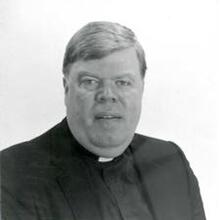It’s my silver anniversary. I just finished my 25th diversity workshop. Obligatory chapel has long since disappeared, but attendance at diversity training has become a command performance in faculty formation.
The workshop followed the usual grooves. PowerPoint graphs flashed the latest statistics on campus ethnic and sexual divisions. The stress on sexual orientation becomes more pronounced with each new edition. Two years ago, the president of Elmhurst College in Illinois proudly announced that his school would be the first to ask questions about sexual orientation on its admission applications.
In truth, this particular workshop was a cut above the others. The animator argued that the fundamental dynamic behind diversity differences on campus was the relationship between majority and minority. In a predominantly female student body, it is the men who feel ignored. On a predominantly Caucasian campus, people of color feel more excluded. With a majority of students nominally Catholic, non-Catholics find the campus ethos more alien. It is the power of numbers, rather than biology, that separates the insiders from the outsiders.
The omissions in our diversity sessions are striking. In the old troika of class, race and gender, class rarely makes an appearance. The gap between wealthy and poorer students has not disappeared. Clothes, cars and spending money remain sturdy tokens of status. Yet for all our attention to diversity, economic class remains submerged, as if the entire nation had suddenly become middle class. Tuition rates have consistently outrun the inflation rate, but frank discussion of the uneasy campus fusion between Neiman Marcus cardholders and Wal-Mart shoppers seems impolite.
Despite their political charge, diversity programs rarely consider political diversity. At one session, a faculty member suggested that the school should map the partisan affiliation of faculty members: Democrats, Republicans, Others, Independents. If the partisan breakdown did not match the general population’s, we might consider the factors behind this pattern of exclusion. An audible gasp broke out. The animator announced that such questions were improper and nervously launched into a discussion of diverse hobbies. (The T’ai Chi enthusiasts dominated.) Despite their penumbra of varied ethnicities and sexualities, many diversity programs seem to serve a monochrome political agenda. Robust political pluralism is unwelcome.
At the Catholic universities where I have taught, religion plays a muted role in our diversity discussions. It is crucial to understand the viewpoints of those who belong to minority religions, but the Catholic identity of the school rarely contributes to how we frame the question of diversity.
The extraordinary ethnic diversity within Catholicism itself seems to be of only modest interest in our instruction and research. The last workshop I attended was actually an exception in this regard. After discussing sexual orientation on campus, our animator remarked that negotiating the relationship between the school’s Catholic mission and questions of sexual orientation represented a challenge. The session recognized that the usual diversity concerns should be treated differently at a Catholic institution precisely because of its Catholicism.
We currently focus intensely on the question of religious identity at Catholic universities, yet when we tease out the implications of this identity for diversity and other programs, our religious mission often dissolves into the cloud of unknowing.
I just received an invitation to what will be my 26th diversity workshop in the fall. The session will certainly continue the good fight against the stubborn traces of racism, sexism and their attendant poisonous stereotypes. I hope it will transcend questions rooted in biological difference and also address questions of economic, political and religious difference through a distinctively Catholic prism. I even dream it will open out into a discussion of our diverse ideas, since the celebration and testing of such dueling ideas through rigorous debate is the very reason for the university’s existence. But I suspect that this Platonic diversity workshop is for another day.








